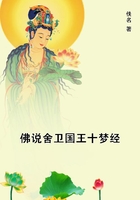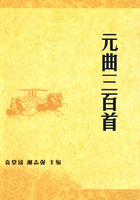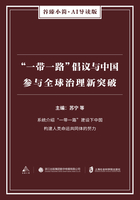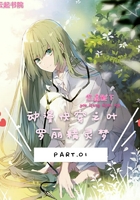"What an odd phrase! And what are the drums of jeopardy?" asked Kitty, leaning on her arms. Odd, but suddenly she felt a longing to go somewhere, thousands and thousands of miles away. She had never been west of Chicago or east of Boston. Until this moment she had never felt the call of the blood - her father's. Cocoanut palms and birds of paradise! And drums in the night going tumpi-tum-tump! tumpi-tum-tump!
"I've always been mad over green things," began Cutty. "A wheat field in the spring, leafing maples. It's Nature's choice and mine.
My passion is emeralds; and I haven't any because those I want are beyond reach. They are owned by the great houses of Europe and Asia, and lie in royal caskets; or did. If I could go into a mine and find an emerald as big as my fist I should be only partly happy if it chanced to be of fine colour. In a little while I should lose interest in it. It wouldn't be alive, if you can get what I mean.
Just as a man would rather have a homely woman to talk to than a beautiful window dummy to admire. A stone to interest me must have a story - a story of murder and loot, of beautiful women, palaces.
"Br-r-r!" cried Burlingame.
"Why, I've seen emeralds I would steal with half a chance. I couldn't help it. Fact," declared Cutty, earnestly. "Think of the loot in the Romanoff palaces! What's become of all those magnificent stones? In a little while they'll be turning up in Amsterdam to be cut - some of them. Or maybe Mister Bolsheviki's inamorata will be stringing them round her neck. Loot."
"But the drums of jeopardy!" said Kitty.
"Emeralds, green as an English lawn in May after a shower, Kitty.
By the way, do you mind if I call you Kitty? I used to."
"And I've always thought of you as Cutty. Fifty-fifty."
"It's a bargain. Well, the drums to my thinking are the finest two examples of the green beryl in the world. Polished, of course, as emeralds always should be. I should say that they were about the size of those peppermint chocolate drops there."
"Have one?" said Kitty.
"No. Spoil the taste of the pipe."
"You ought to spoil that taste once in a while," was Burlingame's observation. "But go on."
"I suppose originally there was a single stone, later cut into halves, because they are perfect matches. The drums proper are exquisitely carved ivory statuettes, of Hindu or Mohammedan drummers, squatting, the golden base of the drums between the knees, and the drumheads the emeralds. Lord, how they got to me! I wanted to run off with them. The history of murder and loot they could tell!
Some Delhi mogul owned them first. Then Nadir Shah carried them off to Persia, along with the famous peacock throne. I saw them in a palace on the Caspian in 1912. Russia was very strong in Persia at one time. Perhaps they were gifts; perhaps they were stolen - these emeralds. Anyhow, I'd never heard of them until that year. And I travelled all the way up from Constantinople to get a glimpse of them if it were possible. I had to do some mighty fine wire-pulling.
For one of those stones I would give half of all I own. To see them in the possession of another man would be a supreme test to my honesty."
"You old pirate!" said Burlingame.
"But why the word jeopardy?" persisted Kitty, who was intrigued by the phrase.
"Probably some Hindu trick. It is a language of flowery metaphors.
It means, I suppose, that when you touch the drums they bite. In journeying from one spot to another they always leave misfortune behind, as I understand it. Just coincidence; but you couldn't drive that into an Oriental skull. This is what makes the study of precious stones so interesting. There is always some enchantment, some evil spell. To handle the drums is to invite a minor accident.
Call it twaddle; probably is; and yet I have reason to believe that there's something to the superstition."
Burlingame sniffed.
"I can prove it," Cutty declared. "I held those drums in my hands one day. I carried them to a window the better to observe them.
On my return to the hotel I was knocked down by a horse and laid up in bed for a week. That same night someone tried to kill the man who showed me the emeralds. Coincidence? Perhaps. But these days I'm shying at thirteen, the wrong side of the street, ladders, and religious curses."
"An old hard-boiled egg like you?" Burlingame threw up his hands in mock despair.
"I laugh, too; but I duck, nevertheless. The chap who showed me the stones was what you'd call the honorary custodian; a privileged character because of his genius. Before approaching him I sent him a copy of my monograph on green stones. I found that he was quite as crazy over green as I. That brought us together; and while I drew him out I kept wondering where I had seen him before. Both his name and his face were vaguely familiar. lt seems a superstition had come along with the stones, from India to Persia, from there to Russia. A maid fortunate enough to see the drums would marry and be happy. The old fellow confessed that occasionally he secretly admitted a peasant maid to gaze upon the stones. But he never let the male inmates of the palace find this out. He knew them a little too intimately. A bad lot."
"And this palace?" asked Kitty.
"Not one stone on another. The proletariat rose up and destroyed it. To mobs anything beautiful is offensive. Palaces looted, banks, museums, houses. The ignorant toying with hand grenades, thinking them sceptres. All the scum in the world boiling to the top. After the Red Day comes the Red Night."
"Whatever will become of them - the little kings and princes and dukes?" After all, thought Kitty, they were human beings; they would not suffer any the less because they had been born to the purple.















